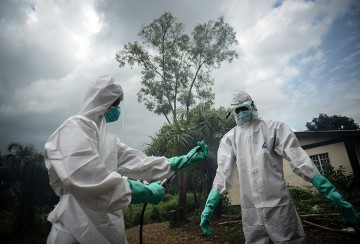Access article: Protecting health workers from infectious disease transmission: an exploration of a Canadian-South African partnership of partnerships.
A new article by NGDI members, Drs. Annalee Yassi, Jerry Spiegel and Lyndsay O’Hara explores an almost ten year Canadian-South African partnership to provide health system strengthening expertise to enhance and develop occupational health and infection control. The article outlines the type of partnership model and why it was effective; the contributions to the success that were achieved and what lessons could be drawn for others seeking effective partnership models.
They stress that peer-to-peer North-South partnerships, which have been used very successfully to promote clinical skill development of health care workers, should also be considered for improving work environments as well. The model they utilized was a North-South-South “community of practice” between two World Health Organization Collaborating Centres for Occupational Health (one here at UBC, run by Drs. Yassi and Spiegel) and one in South Africa. The other ‘south’ partner is a same country less-resourced partner (a rural hospital, in this case). This led to a more peer-to-peer experience (hence the community of practice) but for both the main Canadian and South African centres. They found this helped to successful translate good infection control practices and helped to direct policy on a provincial and national level to sustain the changes.

A group of young volunteers wears special uniform and wash their hands with chlorinated water ahead of sterilizing the bodies of people, died due to the Ebola virus, in Kenema, Sierra Leone on August 24, 2014. People work for 6 dollars per a day in burial and sterilizing works in Kenema where the infection of the virus is mostly seen. (Mohammed Elshamy/Anadolu Agency/Getty Images)
It’s a good read and the article can be accessed online here in the latest Globalization and Health journal.
The UBC Collaborating Centre’s work on infection control for health care workers in endemic countries during the Ebola crises was highlighted in the NGDI’s Ebola Symposium for Treatment and Action. This can still be access here with the Centre’s work highlighted between 2:48 – 2:54 hours in the recording.